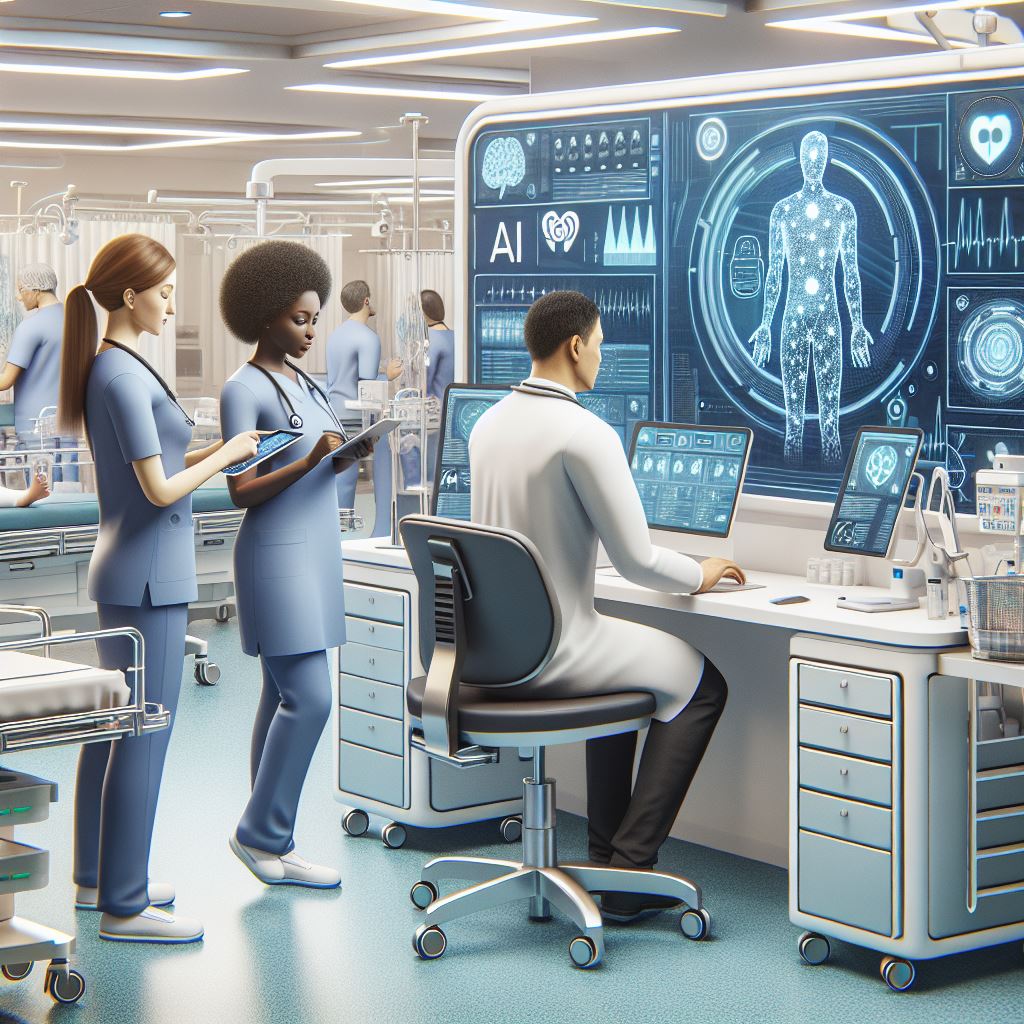Artificial intelligence is becoming an essential part of healthcare, transforming how services are delivered across the UK. From improving diagnostics to enhancing patient care, AI tools are increasingly helping healthcare professionals make more informed decisions.
The integration of AI into medical practice is perhaps most evident in diagnostic tools. AI systems like Google’s Med-PaLM M and MedLM are designed to combine patient records, lab results, and medical images like X-rays and MRIs to assist clinicians in making diagnostic decisions. In some trials, these AI systems have shown they can interpret medical data with high accuracy, providing clinicians with additional insights that may help identify conditions more quickly. For example, in clinical settings, AI tools have been shown to match or exceed human performance in certain diagnostic tasks, such as analysing chest X-rays.
The use of AI has garnered significant support from both the public and healthcare professionals. A 2024 survey commissioned by the Health Foundation found that 54 per cent of the UK public and 76 per cent of NHS staff support the use of AI in patient care. Support for AI in administrative roles was even higher, with 61 per cent of the public and 81 per cent of NHS staff backing its use in non-clinical tasks. However, while many embrace AI’s potential, some still have concerns about its impact. A portion of the public (around 1 in 6) and NHS staff (1 in 10) worry that AI might worsen the quality of care. Younger people (aged 16–24) tend to be more skeptical about AI’s ability to improve healthcare, and women are generally more cautious compared to men.
One concern raised in the survey was the potential for AI to distance patients from healthcare professionals. Over half of the public (53 per cent) feared that AI might make interactions with healthcare providers less personal, and 65 per cent of NHS staff expressed similar concerns about losing human connection with patients. As AI systems become more prevalent, it will be important to ensure that their implementation enhances, rather than detracts from, the human elements of care.
AI is also making strides in other areas of healthcare, such as drug discovery. Traditionally, the process of developing new drugs has been long and costly. AI is helping to accelerate this process. For example, companies like Insilico Medicine and Exscientia are using AI to identify promising drug candidates by analyzing vast datasets of chemical compounds and biological information. This has significantly reduced the time required to bring drugs to clinical trials. For instance, AI-designed drug candidates for diseases like fibrosis have entered clinical trials much faster than traditional drug development methods would have allowed.
AI is also enhancing patient experience in various ways. AI-driven tools, such as those offered by Babylon Health, help patients assess their symptoms and determine when they should seek medical care. These tools are designed to provide quick, accessible guidance, helping patients navigate their healthcare needs. Additionally, AI-powered remote monitoring systems are allowing healthcare providers to track patient conditions and intervene earlier, potentially improving outcomes. However, while these tools offer convenience and efficiency, they do not replace the need for human judgment, especially in complex or critical cases.
Despite the growing role of AI in healthcare, experts agree that the key to success lies in its ability to support, rather than replace, human clinicians. AI tools provide valuable insights and can help doctors make faster and more accurate decisions, but the emotional and relational aspects of care must remain rooted in human interaction. The use of AI in healthcare is not about replacing doctors, but about enabling them to work more efficiently and effectively.
As AI continues to evolve, it’s clear that it has the potential to revolutionise healthcare. However, it’s crucial that its integration into the system is done thoughtfully, ensuring that AI complements human care and addresses the concerns of patients and healthcare workers alike. The future of healthcare is likely to be one where technology and human expertise work hand in hand to provide better outcomes for patients.
AI tools supported the development of this article. ChatGPT was used to brainstorm story angles, structure the narrative, and assist with writing and editing. Perplexity AI was employed for fact-checking, while Microsoft Copilot assisted with image generation. All AI-generated content was carefully reviewed, verified, and edited by the journalist to ensure factual accuracy and uphold journalistic standards.





